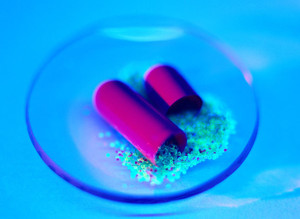Differences between generics and their reference product in terms of inactive ingredients, e.g. residual solvents, are allowed if applicants provide information demonstrating that these differences do not affect the safety or efficacy of the proposed drug product. Authors from the Office of Generic Drugs at the US Food and Drug Administration (FDA) highlight general toxicology concerns caused by formulation differences between generic and originator drugs [1].
Residual solvents are carbon-containing compounds that are commonly used during the manufacture of pharmaceutical products in order to enhance the yield of the product, impact the physical properties of the drug substance, increase the purity of the drug substance or influence the solubility of the drug. They do not have any therapeutic value and can be potentially toxic. For this reason, FDA has provided guidance on permissible levels in pharmaceutical products:
Residual solvents in drug products marketed in the United States
www.fda.gov/downloads/Drugs/GuidanceComplianceRegulatoryInformation/Guidances/UCM070621.pdf
Residual solvents are broadly categorized into four classes (Classes 1–4) based upon their toxicological characteristics. Typically, Class 1 solvents are avoided in the manufacture of a drug product. Class 2–4 use is limited by ascertaining the permissible daily exposure (ICH Q3C [R5] guideline defines permissible daily exposure as pharmaceutically acceptable intake for residual solvents) for the solvent in question.
Scenarios warranting evaluation of the safety of generics with respect to the residual solvents:
- Presence of a Class 4 residual solvent in the generic product, but not in the reference drug label
- Proposed residual solvent levels exceed those outlined in the ICH Q3C (R5) guideline
- Residual solvent used in the generic drug product that has not been evaluated for the proposed route of administration
- Residual solvent reacting with other components in the generic drug formulation, leading to toxic contaminant(s) in the finished product
In some cases, such as opioids used for chronic pain management, each residual solvent is considered on a case-by-case basis to ensure that the generic drug product does not pose an increased risk of adverse events compared with the reference drug.
Conflict of interest
The authors of the research paper [1] did not provide any conflict of interest statement.
Disclaimer: The ideas and views provided in the research paper [1] are the opinions of the authors and do not reflect any official policy of the FDA.
Related articles
FDA evaluation of impurities in generics
FDA evaluation of excipients in generics
Formulation differences between generics and reference products
Reference
1. Rayavarapu S, et al. Comparative risk assessment of formulation changes in generic drug products: a pharmacology/toxicology perspective. Toxicol Sci. 2015;146(1):2-10.
Permission granted to reproduce for personal and non-commercial use only. All other reproduction, copy or reprinting of all or part of any ‘Content’ found on this website is strictly prohibited without the prior consent of the publisher. Contact the publisher to obtain permission before redistributing.
Copyright – Unless otherwise stated all contents of this website are © 2015 Pro PharmaCommunications International. All Rights Reserved.








 2
2











Post your comment